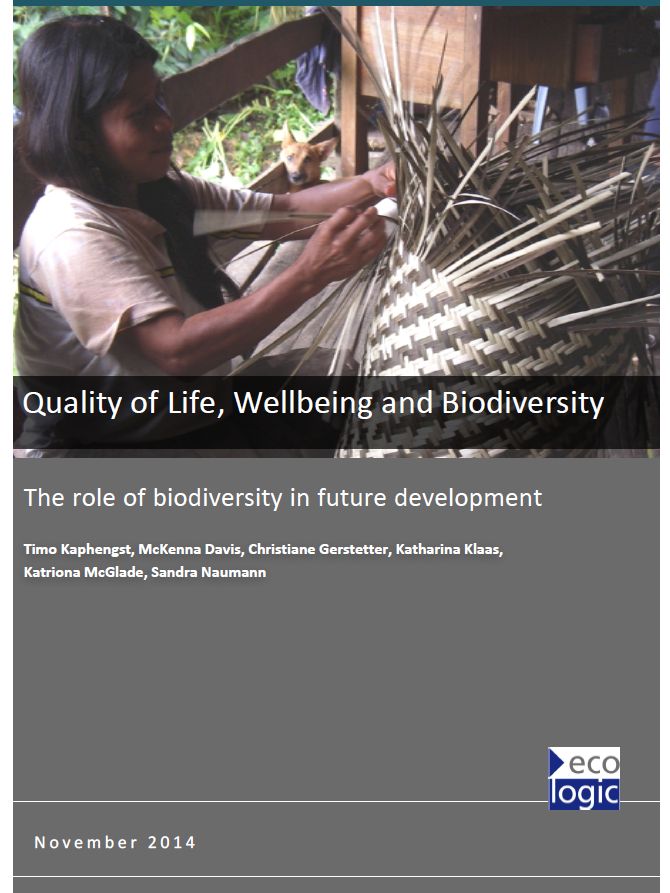Biodiversity Narratives and their Implications for International Cooperation - Ecuador
- Event
- Date
-
- Location
- Quito, Ecuador
On 18 June 2014, a project workshop entitled "Biodiversity and development - Different biodiversity narratives and their implications for international cooperation" took place in Quito (Ecuador), organized by Ecologic Institute in cooperation with the Deutsche Gesellschaft für Internationale Zusammenarbeit (GIZ). A diverse mix of perspectives was represented at the workshop, including individuals from NGOs, community-based organizations, universities, international cooperation and civil society.
A strong focus in the workshop was on the integration of the vision of buen vivir (good living) into strategies and programmes of the International Cooperation and its consideration throughout a projects lifetime. To ensure that buen vivir and biodiversity protection policies are adequately considered and addressed in cooperation projects, a 'checklist' of the expected and actual effects of the project should be applied.
Moreover, the need to strengthen the capacities of public authorities working on the topic of biodiversity at both the national and regional levels was emphasized by workshop participants. More specifically, advisory and consulting services on biodiversity-related topics are recommended for informing national political processes and in particular for outlining opportunities towards a sustainable economic development. In this context, workshop participants also suggested that international cooperation should build the foundation for cooperation between civil society and the private sector, and creating incentives for the participation of businesses/ entrepreneurs.
Furthermore, it was outlined that knowledge gaps should be aligned with national research priorities. A participative development of the research agenda as well as a focus on applied research was emphasized. The international cooperation could support this process by identifying knowledge gaps and information needs on behalf of regional partners.
In addition to this workshop, interviews with relevant stakeholders were carried out to explore further the perceptions and linkages between nature and biodiversity, quality of life, human well-being and the role of international cooperation in Ecuador. Yolanda Kakabadse, president of the World Wide Fund for Nature, was one of the interviewees.
The results will feed into general recommendations to be developed for biodiversity policy and international cooperation in the project “Quality of Life, Well-Being and Biodiversity. The role of biodiversity in future development models“.





